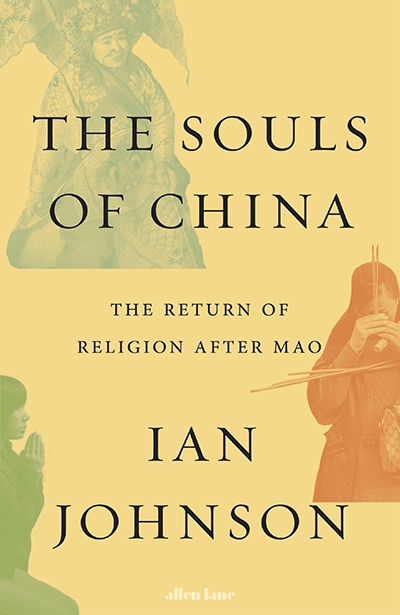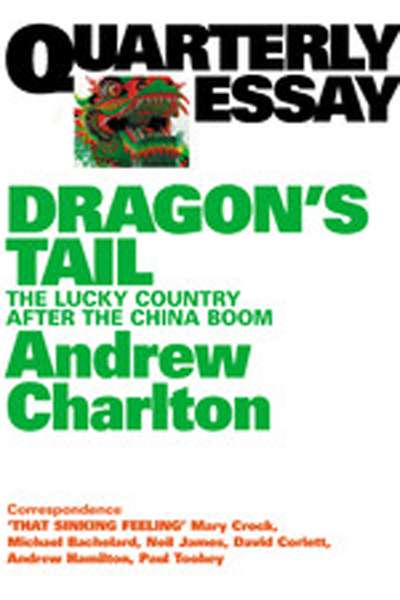Asian Studies
Easternization: Asia’s Rise and America’s decline: From Obama to Trump and beyond by Gideon Rachman
Competing with Middle Eastern wars, terrorist attacks, and presidential tweets, Asia still tends to receive less attention than it merits. Furthermore, while geopolitical tectonic-shifts are occurring in the Indo-Pacific, it can be difficult to step back from daily headlines to assess the current transformation in its entirety. In Easternization, Gideon Rachman ...
... (read more)The Souls of China: The return of religion after Mao by Ian Johnson
In 1989, as the Chinese Communist Party came to terms with the ongoing significance of religion in post-Mao China, they needed a new formula to explain its survival. Religion was, they said, a long-term phenomenon. It had a mass base; it had national dimensions, in that some of China’s nationalities identified strongly with ...
... (read more)The Near and the Far: New stories from the Asia-Pacific region edited by David Carlin and Francesca Rendle-Short
At the 2016 Melbourne Writers Festival, Maxine Beneba Clarke received a standing ovation for her opening address in which she pushed for greater diversity in literature. ‘Something ...
... (read more)Australia does not have a great tradition of writers producing books on international affairs for a general audience. Along with others like Hugh White, Michael Wesley – a former head of the Lowy Institute now based at the Australian National University – is helping to correct this.
... (read more)The Seasons of Trouble: Life amid the ruins of Sri Lanka’s civil war by Rohini Mohan
In May 2009, Sri Lanka’s three-decade-long civil war came to an end with the government’s defeat of the separatist Liberation Tigers of Tamil Eelam (known as the Tamil Tigers). The long conflict had brought a range of horrific abuses: deliberate shelling of civilian areas; suicide bombing of civilian targets; enforced disappearances; rape; forced conscription, including child soldiers; and the use of civilians as human buffers. In 2011 a UN panel of experts made preliminary findings that these abuses were violations of international humanitarian law and human rights law and that some could even amount to crimes against humanity. This prompted the current international investigation into the allegations by the Office of the High Commissioner for Human Rights.
... (read more)The Island of Singing Fish: A colonial childhood in Ceylon by Tina Faulk
Two government acts shaped Tina Faulk’s life: Ceylon’s 1956 Official Language Policy Act, known as the Sinhala Only Act, and Australia’s Immigration Restriction Act of 1901, better known as the White Australia policy. The first virtually disenfranchised not only Faulk’s Burgher community, but also Sinhalese and Tamil middle-class élites, whose primary language, outside the family circle, was English. Countless Burghers were civil servants and, even if multilingual, were now unable to compete with Sinhalese-educated people for post-Independence public service positions. Similar selection criteria applied to military and commercial jobs.
... (read more)The New Emperors: Power and the princelings in china by Kerry Brown
For countries, and none so important to Australia, have a political system as opaque as that of China. This is deliberate; since the turmoil of the Cultural Revolution, the Communist Party of China (CPC) has striven to make turnovers in its leadership as bland as possible. But the elevation of the country’s current ‘Fifth Generation’ Leadership was actually full of drama. The New Emperors, written by Kerry Brown, director of the China Studies Centre at the University of Sydney, tells us why.
... (read more)Dragon’s Tail: The Lucky Country after the China boom (Quarterly Essay 54) by Andrew Charlton
I dealt with China for most of the ten years I worked for the British Foreign Office from 1998. The one conclusion I drew from my experience over those years was that it didn’t take much to stumble into complexity. Britain and China have a vast historic hinterland. In 1839, British forces inflicted the first Opium War on China, and British politicians enforced the unequal treaties which ushered in what some Chinese call to this day ‘the century of humiliation’. In the hundred years that followed, Britain continued meddling and became involved in issues from Tibet to Hong Kong, building up a fund of resentment on the Chinese side that continues to pay back returns to the current day.
... (read more)Walter Spies by John Stowell & Brown Boys and Rice Queens by Eng-Beng Lim
‘Spellbinding’ is an apt word to sum up the effects created by Russian-born German artist Walter Spies in his phantasmagoric, darkly glowing landscapes and figure paintings, particularly those that he fashioned when living in Java and Bali between 1923 and 1941. Tropical luxuriance has other superlative renderers in art – Gauguin, ‘Le Douanier’ Rousseau, Donald Friend – but none of their works has the eerie, mesmeric intensity of Spies’s. He deserves a full retrospective exhibition at that temple of early twentieth-century German art, the Neue Galerie, in New York (the last show of his work was in Holland back in 1980), but for the moment we can feast our eyes on the sumptuous illustrations in John Stowell’s biographical study of the artist – the first study in English of such substance, and a long-evolving project by an Australian scholar based at the University of Newcastle.
... (read more)North Korea always gets media attention for negative reasons: a border skirmish with its southern neighbour; a missile trial launch or nuclear test; vitriolic propaganda attacks on South Korea, Japan, or the United States; or the appalling findings of some human rights group like Michael Kirby’s recent UN Commission of Inquiry on North Korea’s human rights abuses. The picture that emerges is one of unrelenting misery within North Korea and unreasoned aggressiveness towards its enemies – a dangerous and unpredictable country which, if it cannot be reformed, is best either shunned or guarded against.
... (read more)










